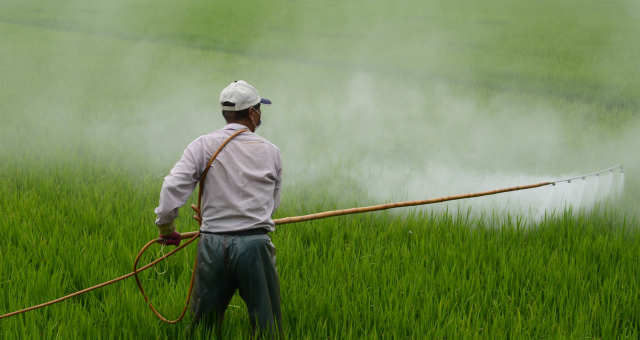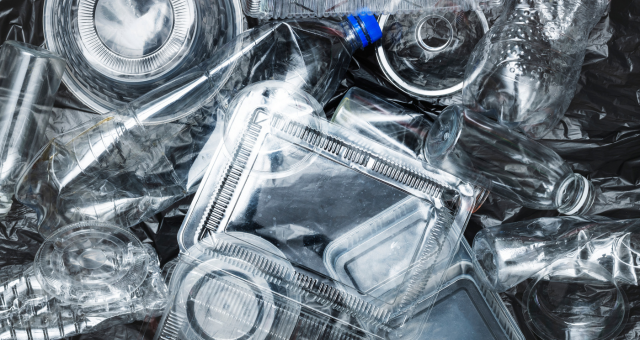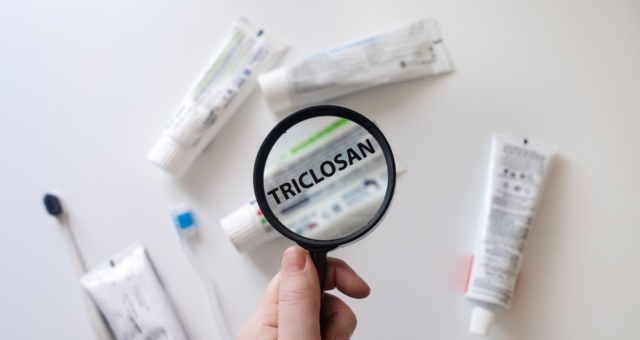Medically Reviewed by Lucas Rosa, PhD in Molecular Biology
When we think about staying healthy, we often focus on eating clean, but what if the very food we eat to stay healthy is quietly messing with our hormones? This is where pesticides come in – a hidden factor that many health-conscious people overlook.
Whether you’re just starting your wellness journey or are actively reading food labels, this is one area you don’t want to ignore.
In this blog, we’ll break down what pesticides are, where you’ll find them, how they mess with your hormone system, and most importantly, how you can reduce your exposure.
What Are Pesticides?
Pesticides are synthetic chemical compounds used to kill pests like insects, weeds, fungi, and rodents. They’re applied to crops, lawns, and even used in homes to prevent or control pests.
While they help increase food production and prevent crop loss, they come with a health cost, especially when it comes to hormonal balance. There are many types of pesticides, including:
- Insecticides: used to kill insects
- Rodenticides: used to kill rats and mice
- Fungicides: used to control mold and mildew
- Herbicides: used to kill unwanted plants (weeds)
Most of these pesticides don’t just disappear after they’re sprayed. They can stay on produce, seep into the soil, or find their way into water sources. And yes, many of them end up inside our bodies.
Governments around the world control the use of pesticides to try to keep them in non-harmful ranges, and regulatory agencies keep a close watch. However, it is still important to try to minimize their exposure in your life, as the very long-term effects of even small exposures are not fully understood.

Where Are Pesticides Commonly Found?
Pesticides are almost everywhere in modern life, especially in:
- Non-organic Fruits and Vegetables (like strawberries, spinach, apples, and grapes)
- Grains and Cereals
- Conventional Meat and Dairy (where animals are fed pesticide-sprayed feed)
- Public Parks and Playgrounds (sprayed with herbicides for maintenance)
- Tap Water (due to pesticide runoff into rivers and lakes)
Even if you wash your produce, some pesticide residues can remain, and long-term exposure to even in small amounts can add up and affect your hormones.
How Pesticides Affect Hormonal Health
Pesticides are known endocrine-disrupting chemicals (EDCs). These substances interfere with how hormones work in your body (1). Hormones are delicate chemical messengers that need to work in precise amounts and timing, but pesticides can throw them off. Here’s how:
1. Mimicking Hormones (Especially Estrogen)
Some pesticides mimic the hormone estrogen, leading your body to think it has more estrogen than it actually does. This can cause hormonal imbalances that affect reproductive health, weight, mood, and energy levels. (2)
For example, the pesticide DDT (now banned in many countries but still persistent in the environment) and its breakdown product DDE have estrogen-like effects.
2. Blocking Hormone Receptors
Some pesticides prevent hormones from binding to their receptors. This means that even if your body is producing the right amount of hormones, your cells can’t “hear” the message. This has been seen in pesticides that interfere with testosterone, potentially lowering fertility in men. (3)
3. Disrupting Thyroid Function
Certain herbicides like glyphosate (the active ingredient in Roundup) can affect thyroid hormones, which regulate metabolism, mood, and brain development. Imbalanced thyroid hormones are especially risky for pregnant women and children. (4)
4. Triggering Inflammation
Pesticides can trigger chronic inflammation, which impacts cortisol levels and the stress response. Over time, this can lead to burnout, sleep issues, and even conditions like adrenal fatigue. (5)

Real-World Health Effects Linked to Pesticides
Scientists have studied the effects of pesticide exposure on humans for years, and while the results vary depending on the type and amount of exposure, common findings include:
- Early Puberty: Linked to estrogen-mimicking pesticides that alter hormonal timing.
- Reduced Sperm Count: Pesticides that disrupt testosterone can impair male fertility.
- Increased Risk of PCOS and Hormone-Related Cancers (like breast or prostate cancer): Long-term exposure to endocrine disruptors may contribute to these conditions.
- Thyroid Dysfunction: Certain herbicides interfere with thyroid hormone production and balance.
- Infertility or Menstrual Irregularities: Hormonal disruptions from pesticides can affect ovulation and menstrual cycles.
- Behavioral Problems in Children: Prenatal or early life exposure can impact brain development and behavior.
The World Health Organization (WHO) also recognizes certain pesticides as endocrine disruptors with potential long-term consequences.
How to Reduce Exposure to Pesticides
Thankfully, you don’t need to panic and move to avoid pesticides. There are practical steps you can take today to lower your exposure and protect your hormones:
- Choose Organic When Possible: Organic produce is grown without synthetic pesticides. While it’s not always 100% pesticide-free (due to environmental drift), it significantly reduces your exposure.
- Wash Produce Thoroughly: Use water and a little baking soda to clean your fruits and vegetables. Peeling the skin can also help (though you may lose some nutrients).
- Buy Local: Small local farms often use fewer pesticides, even if they aren’t certified organic. Talk to your local farmers and ask about their practices.
- Drink Filtered Water: Always use a high-quality water filter that can remove pesticide residues and other contaminants from water sources.
- Eat Grass-Fed or Organic Meat and Dairy: Animals fed pesticide-laced grains can accumulate toxins in their fat. Opt for pasture-raised, grass-fed, or organic options when possible.
- Avoid Using Pesticides at Home: Use natural pest control methods like vinegar, essential oils, diatomaceous earth, or sticky traps instead of chemical sprays.
- Strengthen Your Detox Pathways: Your body naturally detoxifies toxins, including pesticides, through the liver, kidneys, and sweat. Help your body out by:
- Drinking plenty of water
- Eating foods rich in fiber and antioxidants (like leafy greens, berries, and cruciferous vegetables)
- Exercising to promote sweating
- Getting enough sleep for hormone balance and detoxification

Conclusion
Pesticides are everywhere, but that doesn’t mean we’re helpless. Even small changes can lower your exposure and protect your hormone health in the long run.
Being aware of where pesticides are found and how they interfere with your body gives you the power to make smarter choices. So next time you’re in the produce aisle, cooking dinner, or filling up your water bottle, think of your hormones.
Choosing organic items, washing produce well, and skipping chemical sprays at home may seem small, but they add up to make a big difference for your health.
References
- Bretveld RW, Thomas CM, Scheepers PT, Zielhuis GA, Roeleveld N. Pesticide exposure: the hormonal function of the female reproductive system disrupted? Reprod Biol Endocrinol. 2006 May 31;4:30. doi: 10.1186/1477-7827-4-30. PMID: 16737536; PMCID: PMC1524969. https://pmc.ncbi.nlm.nih.gov/articles/PMC1524969/#:~:text=In%20epidemiological%20studies%2C%20exposure%20to,of%20the%20female%20hormonal%20function.
- Bretveld RW, Thomas CM, Scheepers PT, Zielhuis GA, Roeleveld N. Pesticide exposure: the hormonal function of the female reproductive system disrupted? Reprod Biol Endocrinol. 2006 May 31;4:30. doi: 10.1186/1477-7827-4-30. PMID: 16737536; PMCID: PMC1524969. https://pmc.ncbi.nlm.nih.gov/articles/PMC1524969/.
- Yalan Liu, Fengzhong Wang, Lin Li, Bei Fan, Zhiqiang Kong, Jianxin Tan, Minmin Li, The potential endocrine-disrupting of fluorinated pesticides and molecular mechanism of EDPs in cell models, Ecotoxicology and Environmental Safety, Volume 289, 2025, 117615, ISSN 0147-6513, https://doi.org/10.1016/j.ecoenv.2024.117615.
- Leemans M, Couderq S, Demeneix B, Fini JB. Pesticides With Potential Thyroid Hormone-Disrupting Effects: A Review of Recent Data. Front Endocrinol (Lausanne). 2019 Dec 9;10:743. doi: 10.3389/fendo.2019.00743. PMID: 31920955; PMCID: PMC6915086. https://pmc.ncbi.nlm.nih.gov/articles/PMC6915086/#:~:text=Similarly%2C%20experimental%20evidence%20suggests%20that,receptors%20(41%E2%80%9343).
- Lopes-Ferreira M, Farinha LRL, Costa YSO, Pinto FJ, Disner GR, da Rosa JGDS, Lima C. Pesticide-Induced Inflammation at a Glance. Toxics. 2023 Oct 31;11(11):896. doi: 10.3390/toxics11110896. PMID: 37999548; PMCID: PMC10675742. https://pmc.ncbi.nlm.nih.gov/articles/PMC10675742/#:~:text=Studies%20have%20shown%20that%20exposure,responses%20in%20humans%20and%20animals.
Check Out
HF Swaps
Better products for better hormone health.









